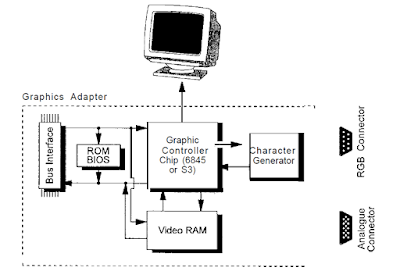please like & Subscribe our youtube channel
https://www.youtube.com/playlist?list=PLQzJncZC8PUwCTcniu_akzp0N0oDx7l1n
ROM Media Architecture
The Android system provides APIs for recording
and playing audio and video, and for using the built-in camera as an
input device.
Supported Media Formats
The media codec, container, and network protocols supported by the Android platform.
MediaPlayer
The MediaPlayer class provides basic audio and video playback capabilities.
MediaRecorder
The MediaRecorder class provides basic audio recording capabilities using the device's microphone.
Media Routing
Apps use the Android routing APIs to play audio and video on remote devices.
Camera API
The Camera API is used to specify image capture settings, start/stop imaging preview, take pictures, and retrieve the raw video.
The Android multimedia framework contains
support for playing various of common media types, so that you can
easily integrate audio, video and images into your applications. You can
play audio or video from media files stored in your application's
resources (raw resources, assets) using MediaPlayer APIs.
 |
| android ROM Media Architecture |
Application Layer
The application layer of audio architecture includes media applications.Application framework Layer
Android framework layer includes android.media Libraries which access JNI.JNI (java native Interface)
JNI provide core code for android libraries or android API.Native Libraries
Native libraries provide the interface to system API. These files are written in c/c++ code.IPC (Inter Process Communication)
IPC provide Communication between different processes. It is also located in framework/av/libmedia.Media Service
It
is the multimedia framework which provides the engine for audio and
video Record. For this process use mediaplayerservice.cpp and located
into framework/av/media/libmediaframewrokservice.
OMX Integration
OMX Integration provides interface with the hardware-based component.ROM Sensors Architecture
Android has built-in sensors
that measure motion, orientation, and various environmental conditions.
These sensors are providing raw data with accuracy and provide
three-dimensional device movement or positioning, or you want to monitor
changes in the environment near a device. For example, a game might
track readings from a device's gravity sensor to infer complex user
gestures and motions, such as tilt, shake, rotation, or swing. Likewise,
a weather application might use a device's temperature sensor and
humidity sensor to calculate or a travel application might use the
geomagnetic field sensor and accelerometer to report a compass bearing.
 |
| android ROM Sensors Architecture |
Application layer
The application layer of audio architecture includes Sensor applications.Application framework Layer
Android framework layer includes android.hardware Libraries which access JNI and interact with Bluetooth hardware.JNI (java native Interface)
JNI provide core code for android libraries or android API. Its provide interface with android.hardware API. This included in frameworks/base/core/JNI folder.Native Libraries
Native libraries provide the interface to system API. These files are written in c/c++ code. This included in frameworks/native folder.IPC (Inter Process Communication)
IPC provide Communication between different processes.Sensor Service
Sensor service provides interface with HAL.Sensor HAL
Sensor HAL provides userspace. It provides Interface with your hardware and drives. Its contain sensors.h and sensors.app files. It’s located into hardware/libhardware/include/hardware.Sensor Driver
Sensor driver contains input event and sensor hub driver which understand by the kernel.Sensor Hub
Sensor hub use in low-level computation.
Batching
Batching process is used to store sensor event in hardware in FIFO to process to HAL.
Sensor Types
Base Sensor
This type’s sensor associated with hardware
- ACCELEROMETER
- GYROSCOPE
- MAGNETOMETER
Composite Sensors
A sensor which not associated with the base sensor is called composite sensor.
ROM Graphics Architecture
android Provides low-level graphics features such as canvases, color, points, and rectangles to drawing to the screen directly.
The
Android framework provides a various of graphics APIs for 2D and 3D
that interact with manufacturer implementations of graphics drivers, so
it is important to the understanding of how those APIs work at a higher
level. This page introduces the graphics hardware abstraction layer
(HAL) upon which those drivers are built.
Application developers draw images to the screen in two ways: with Canvas or OpenGL.
 |
| android ROM Graphics Architecture |




No comments:
Post a Comment